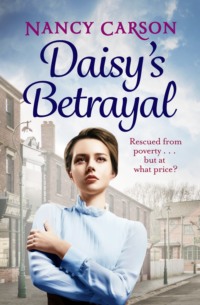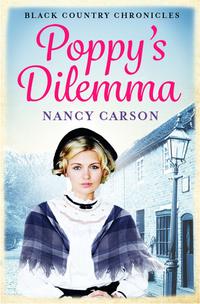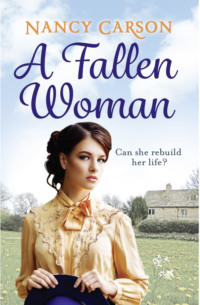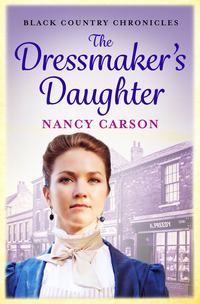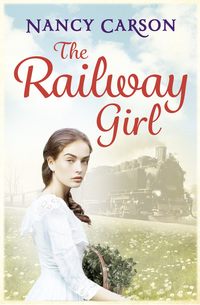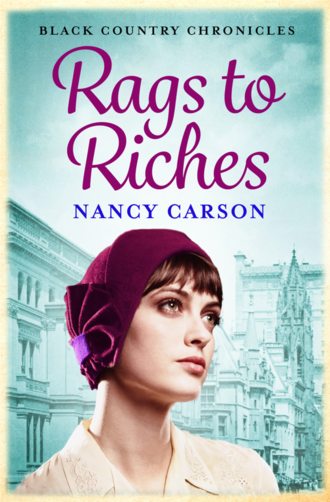
Полная версия
Rags to Riches
After the applause they took off again on another ride: a fairly recent piece by Ravel, called Boléro. Leslie Heward controlled the emotion in the music skilfully, building the tension almost imperceptibly. At first it was coquettish, provocative like a frivolous woman tantalising an admirer. Halfway through, their mutual arousal was already obsessive, ascending steadily to an orgy of compelling passion till the last, loud, staccato chords brought it to a shuddering, juddering finish like sated lovers spent of their last drop of energy.
Applause was immense and sustained and Maxine turned to Gwen, smiling with satisfaction, proud to be a part of this orchestra. So profound had been her concentration that, at the interval, she felt drained. Yet still to come was Beethoven’s Fifth Symphony. Backstage she joined the queue at the trestle table that supported a pile of cups and saucers and a huge urn containing enough tea to refresh the orchestra with at least two cups each.
‘How’s it going, Maxine?’
She turned to see Brent Shackleton standing behind her and her heart skipped a beat. ‘Oh, hello.’ She smiled brightly as she would at an old friend and hoped he could not detect her nervous reaction. The opportunity to speak to him had not presented itself since after last Sunday’s concert, even at rehearsals, and she wondered if he had deliberately avoided her. Well, he was not avoiding her now.
‘So? How’s it going?’ he asked again. ‘Are you settling in all right?’
‘Oh, fine, yes, thank you.’
‘Good. I spotted you in Boléro. Kept you busy towards the end, didn’t it?’
She laughed awkwardly. ‘You, too. I saw you had plenty to do as well.’
‘I’m still breathless.’ He wiped his brow with the back of his hand. ‘Good, though, wasn’t it?’
‘Great.’ They shuffled towards the head of the queue together.
‘You can hear the jazz influences in Boléro, can’t you? The sliding trombone and all that.’ He offered her a cigarette which she declined, and lit one himself. ‘It’s not so stuffy as some of the music we play.’
‘I suppose not. Still…’ She shrugged, hesitant, not sure in what vein to continue the conversation, anxious not to disagree with him. ‘To tell you the truth, I love it all.’
‘Mind you, some of these so-called modern classics are a bit pretentious. You know…Mahler, Scriabin…stuff like that.’ He deeply inhaled smoke and seemed to hold it in his lungs for ages. ‘In my opinion.’
‘I know what you mean,’ Maxine said inadequately. They had reached the trestle table, so she picked up a cup and saucer and held it under the tap of the urn.
‘Not like jazz,’ he remarked.
She moved away from the table when her cup was full. ‘You like jazz, then?’ she asked when he’d rejoined her.
‘Oh, I love jazz.’
‘I like jazz as well,’ she replied truthfully and sipped her tea. ‘I used to listen to jazz records all the time. The people I used to lodge with – before I went to live with my sister – have a daughter who was a keen jazz fan. She used to get hold of some obscure records from America. She’s a musician as well and we used to play it together, mimicking it – just for a laugh, me on the piano usually, she on clarinet. I don’t get the chance to hear much now. Occasionally I hear a snatch on the wireless. Yes, I quite like jazz.’
‘You play piano as well?’ He sounded surprised.
‘I started out on piano.’
He nodded his approval. ‘Oh, it’s great, jazz. It’s not so contrived as this stuff we play here, is it? You know where it comes from?’
‘America, I suppose.’
‘Africa.’ He drew on his cigarette and paused long enough for this gem of information to register. She saw his probing eyes, steady upon her, awaiting her response.
‘Africa?’
‘Missionaries.’ Now he took a gulp of tea.
‘Missionaries?’
‘Missionaries. Missionaries achieved Africanisation of their own hymnbooks, you know, when they were converting the natives to Christianity.’ He sounded pat, as if he’d held the same discussion many times before.
‘I’m not sure I understand.’
‘Well, African tribes interpreted our Christian hymns their own way, using the influences of their own music. That’s what I mean. You know…their own ritual music – chants, tribal songs – stuff like that.’
‘And that was jazz?’
‘Not yet. It was just the beginnings.’ He was laughing. She had not seen him laugh like this before; he always seemed so serious; a touch preoccupied maybe.
Maxine lifted her cup and sipped her tea again, still drawn to his penetrating eyes like a beautiful moth drawn to a night-light.
‘You see,’ he went on, ‘African music developed in a way totally differently to our European music. It was less abstract, less aesthetic – do you know what I mean?’ Maxine nodded her increasing understanding. ‘It was more practical, more of a language – a way of communicating – and they could alter its meaning or emotion just by altering the pitch of a note, or changing the inflection in the voice.’
‘So it was more functional than music for mere art’s sake?’ She was glad that her interest in his explanations was genuine. ‘Is that what you’re saying?’
‘Yes, and more rhythmic. Much more rhythmic. They used what they could lay their hands on for percussion instruments. A stick to beat out a rhythm. On a hollowed out tree trunk, for instance.’
‘Yes, of course.’ Maxine had never seriously pondered the roots of jazz before. It was quite intriguing. Brent Shackleton was certainly intriguing.
Brent puffed more smoke into the room, then drained his cup. ‘Then, when those poor Negroes became victims of the slave trade, these songs – these hymns if you like – evolved into work songs with lyrics to suit the situation. The slave owners encouraged them to sing such songs – apparently they improved the work rate. They weren’t daft, you know. When the slaves were freed, the more musically inclined of them that could afford it got hold of proper instruments. Some got to be brilliant and, because of their own Negro influences – you know, using complicated rhythms and altering notes and sounds by pitch and inflection – jazz evolved.’
‘I never realised,’ Maxine said. ‘I thought somebody just invented it.’
‘Well, there you are. You learn something every day…Fancy another cup of tea?’
She leaned over to the trestle table to return her empty cup and saucer. ‘Oh, I’d best not, thank you. Any more and I’ll be plaiting my legs,’ she remarked self-effacingly.
‘And you can’t play the cello with your legs plaited.’ His eyes met hers directly with a candour that prompted her colour to rise at what she imagined he implied though, to her surprise, she did not mind. ‘Anyway, what are you doing afterwards, Maxine?’
‘After the concert?’ Her heart fluttered while she sipped tea again, her eyes down, lids lowered, in an effort to conceal her intensifying blushes.
‘There’s this club I go to…I wondered if you’d like to come.’
She managed to stifle the urge to choke. ‘I can’t,’ she said, surprised at the depth of her disappointment. ‘Sorry. Not tonight at any rate. But thanks for asking.’
‘Some other time, maybe?’
‘Yes…I’d like that.’ She felt guilty for encouraging him, because of Stephen. But what was wrong with a half promise to go out with Brent at some other time? It was a vague agreement anyway. It might never happen…And yet why shouldn’t it? She was not married to Stephen. She was not even engaged. Nor ever likely to be.
‘Is it because of your young man that you can’t come?’
‘No, not just him,’ she said. ‘My whole family is out there. There’s a celebration afterwards. It’s my twenty-first today, you see.’
‘Your twenty-first?’ Brent turned round. ‘George, d’you hear that? It’s Maxine’s twenty-first today.’
It seemed that all the rest of the orchestra heard it, too, and at once Maxine was swamped with congratulations from all directions.
‘Your first concert with the band on your twenty-first birthday, eh?’ somebody said. ‘You’ll never forget that.’
Maxine flashed a polite smile.
‘Does the boss know?’ another person asked.
‘We’ll make sure he does,’ yet another replied.
Maxine looked with amused bewilderment from one to the other, thanking each well-wisher. What had she done to deserve all this attention? She looked at Brent and shrugged.
‘Will you excuse me, Maxine?’ he said.
Someone else stepped up and began talking to her, then another, and another. Before long, she was the centre of an animated group. They spoke as if they had known her all their lives and she felt easy with them. But afterwards she could not remember a word any of them had said; her mind was awhirl with Brent’s offer to take her out and her regret that she’d had to refuse. But she did have Stephen to consider after all. She could hardly dump Stephen on a whim and take off with Brent.
But what about the beautiful girl she’d seen Brent with? Surely she warranted some consideration too? Besides, how could she compete with a girl like that? How could any man want anybody else when he already had a girl as beautiful as that? A girl with those looks could have her pick of men. Why would Brent be interested in dull Maxine Kite? These questions plagued her till she sat down at her cello for the second part of the concert and for some minutes into it; until she made herself pay attention lest she made any embarrassing mistakes.
Her embarrassment, however, came at the end of the performance. Everyone, including Leslie Heward the conductor, had taken their final bows when he held out both hands to Maxine and gestured for her to stand up. Bewildered, she obliged. But she was even more bemused to receive a round of applause and some cheers, not only from the auditorium, but from the orchestra as well. Still reeling from the shock of it all she turned around and saw that Brent Shackleton and George, his fellow trombonist, were holding up a huge poster for all to see, evidently hastily cobbled together, that proclaimed in huge letters, ‘Maxine – 21 today’. To her embarrassed delight, he and George then led the singing of ‘Twenty-one today’.
Almost at once, the audience was good-humouredly joining in and, when that finished, there rose the inevitable strains of ‘Happy Birthday to You’.
At any concert of classical music there are always huge bouquets of flowers ready to be presented to soloists, leading musicians and so on. So it was a surprise to nobody, except to Maxine, to find herself being presented with such a bouquet from Leslie Heward, who shook her hand and stepped forward to afford her a fatherly peck on the cheek. She grinned with delight, said thank you and bobbed a neat curtsy, which had the combined effect of invoking more cheers.
‘I can’t believe all this,’ she said in an aside to Gwen Berry.
‘It’s not every concert when one of our members is twenty-one,’ Gwen replied. ‘Most of them are at least twice that age. Make the most of it, my girl.’
Three motor cars and a motorcycle, conveying family and friends, all jovial and lively, left Birmingham Town Hall after the concert and travelled in convoy to Daisy Road where Mrs Fothergill, the next door neighbour, had been babysitting for Aldo.
‘Glorious concert, young Maxine,’ Jesse Clancey, her stepfather, commented.
‘Oh, it was brilliant, Jesse. I couldn’t believe it when everybody sang “Happy Birthday”.’
After they had discussed the concert a while longer, Henzey said, ‘And this is Stephen’s sister, Pansy, I presume?’
Henzey and Pansy had not met before but they greeted each other like long-lost sisters and Pansy’s green eyes creased into a warm smile. She was about the same height as Maxine, slim and pretty, with a mop of thick, titian hair. There could be no confusing her and Maxine; they were so different.
Meanwhile Will was welcoming others, taking their coats and hats and guiding them to the parlour where mounds of sandwiches and cakes graced the table.
‘You must be proud of your youngest daughter, Lizzie,’ Will said. ‘I thought she did very well tonight. She seemed to fit in well.’
‘Oh, I’m proud of her all right, Will,’ Lizzie answered, taking a dry sherry from him and nodding her thanks. She raised her glass. ‘But Jesse can take some of the credit. He’s encouraged her as much as anybody – paid for her to go through music school. He’s been like a father to her…to them all.’
Jesse joined them, clutching a pint of beer. ‘Can I just say, Will, how grateful we are to you for holding this party here. We’d intended holding one at the dairy house, o’ course, but with Maxine suddenly landing this job and all…’
‘You’re welcome, Jesse. It just seemed more logical now she’s living here.’
‘Behaving herself, is she?’
Will laughed and patted Jesse on the back. ‘What do you think? I’ve got no complaints.’
‘Lizzie tells me you’re moving house, Will. To Dudley. Do you intend Maxine to lodge with you still? I mean she’d be welcome to live at the dairy house.’
‘It’s up to her, Jesse. I’m content for her to live with us if that’s what she wants. Like I say, I’ve got no complaints.’
In the front room, somebody was thumping out tunes on the piano.
‘That’ll be Joe, Lizzie’s brother,’ Jesse chortled. ‘He don’t half love to play the piano at parties. He’ll have we all singing at the tops of we voices in no time. Mark my words.’
‘They’re a lively lot, aren’t they?’ Pansy remarked.
‘You just wait.’ Jesse turned to Will. ‘Anyway, Will, we’ve all brought something for Maxine. Can I count on you to bring everybody to order later, so’s we can present ’em to her?’
Will nodded. ‘Leave it to me, Jesse.’
Before long, after he had already shepherded everybody into the front room, Will was trying to attract their attention, his hands in the air like a politician fending off hecklers. ‘All right, everyone! Would everyone please listen?’ The piano playing, the singing and the talking stopped. ‘Now, we all know why we’re here, and I hope you’re all enjoying yourselves…Well it’s time to wish Maxine, my very talented sister-in-law, a very happy birthday.’
The cheer from the family turned into a rousing chorus of ‘Happy Birthday to You’, then more cheers and shouts of ‘Speech!’
‘Twenty-one is a person’s coming of age,’ Will went on after his further request to be heard had been heeded. ‘It’s that time in a young person’s life when she is considered an adult, considered to be of an age, at last, when she can be independent. She can come and go as she pleases – within reason – which is why she is traditionally handed the key of the door…’
‘She’s already got the key to our door,’ Henzey remarked.
‘It is a time when she doesn’t have to seek permission from her parents to get married, if marriage is on the agenda. It is a time when she can sign up to any legal binding contract. In short, it’s a time of freedom from the constraints of parental discipline. However, I have got to know Maxine a little better since she’s been living here with Henzey and me, and I believe she is not one to abuse such freedoms. She’s sensible, level-headed…and, incidentally, far too modest about the exceptional talent she has. So…before we all shower her with gifts and congratulate her, let’s make her sing for her supper…’ Will grinned roguishly. ‘Maxine, I’m well aware that your cello playing has done you proud recently, but some of us here consider your piano playing worth a listen. So would you like to take the stool and play?’
Maxine blushed, giggling with embarrassment while Joe moved clumsily away from the piano. ‘What on earth shall I play?’ she asked as she sat down.
‘How about ‘Clair de Lune?’’ Henzey suggested. ‘That’s one of my favourites.’
‘Okay. There’s this nice romantic passage…’
Debussy’s inspired music flowed easily, melodically through Maxine’s fingers, while everyone listened in attentive silence. She played the section tenderly, demonstrating an accomplishment beyond her years. It never crossed her mind to wonder if anybody knew how difficult it was; the long hours of practice needed to play well; the dedication. Yet, it was clear for all to see that Maxine had a natural gift since she could play two instruments with such apparent finesse.
‘Play something modern,’ Herbert, her brother, cried when the piece was finished. ‘We’ve had enough classical for one night.’
‘You and Pansy play that Fats Waller thing,’ Stephen suggested.
‘Oh, yes. I know,’ Maxine replied, glad of a prompt. ‘ “Whose Honey Are You”. Come on, Pansy. Will you play on this one?’
Pansy took the piano stool and began to play. Immediately, the compulsive rhythm had everybody’s feet tapping. But even more of a surprise than the piano playing of either girl, was Maxine’s singing as she leaned against the piano. Nobody had ever heard her sing before.
‘Do “Stormy Weather”,’ Stephen called. ‘You know – that one by Ethel Waters.’
Pansy played the introduction and Maxine launched into the song, using the same soft vocal technique, mimicking the style of Ethel Waters. This American music was unfamiliar to most of them, since few such records were available and they listened to few on the wireless, but everyone was stunned silent by Maxine’s vocal dexterity.
‘More, Maxine!’ Will called when it was finished. ‘That was great. Do you know any more?’
‘They could go on half the night, I daresay,’ Jesse answered.
‘Isn’t that enough?’ Maxine asked at the end of it, effervescing with her success and enjoying the attention she was getting. ‘Can’t I have my presents now?’
‘One more,’ Herbert called.
‘Yes, one more,’ Will echoed.
‘Then can I have my presents?’
They all agreed she could.
‘Okay. Well here’s one for Jesse. Mom would have asked me to play it, I know…’
Pansy vacated the piano stool when it was obvious that Maxine wanted to accompany herself this time. She launched into a compulsively rhythmic, ‘My Very Good Friend the Milkman’.
‘Oh, very appropriate,’ Jesse the dairyman remarked to Lizzie with a wry grin.
‘Cheeky madam,’ her mother declared, watching and listening with profound pride. ‘She told me she’d get a job playing piano and singing in a pub if she had to,’ she whispered to Jesse, ‘but I never realised she’d be this good. She’s come on a bundle since she left home.’
It was obvious that most of the folk present would have allowed Maxine to play and sing for them all night, but Will brought the impromptu concert to a close.
‘Maxine,’ he said, and raised his glass. ‘God bless you and your wonderful talent. Here’s to your future success and happiness. Congratulations and many happy returns of the day.’ He drank, and everybody followed his example. ‘Now…I understand that one or two of us have gifts for you…’
Henzey stepped forward before anyone else. ‘Congratulations, our Maxine. Many happy returns.’ She took her youngest sister’s hand and kissed her on the cheek before pointing to the large but beautifully wrapped parcel lying on the floor that had puzzled Maxine since their return. ‘That’s from Will and me.’
‘Am I supposed to open it now?’
‘Of course.’
She stooped down and fumbled with the wrapping, to reveal a portable gramophone. She gasped with genuine delight, stood up and kissed Will, thanking him profusely, then Henzey. ‘I never imagined…’
‘Consider yourself lucky,’ Henzey said good-humouredly. ‘I would have bought you a vacuum sweeper so you could help with the housework, but Will thought a gramophone might be more appropriate.’
When she’d unwrapped a gold watch, a leather writing case, a silver-plated photograph frame and an elaborately carved wooden music stand, Stephen stepped forward. Maxine was expecting an item of jewellery he’d designed. He handed her a small thin case that she guessed must contain a necklace of some sort and, when she opened it, saw that it was indeed a string of pearls with matching pearl earrings.
‘Thank you, Stephen,’ she said with obvious delight and kissed him on the cheek. ‘But you shouldn’t have done.’
‘I…er…I have this as well, Maxine,’ he said unsurely, and handed her a small cube, wrapped in fancy gilt paper.
She looked at it apprehensively. It could be a ring but she dearly hoped it was not. He’d already said he’d had an idea for a design. Warily she regarded him, hoping that she was wrong.
She said, ‘Thank you, Stephen. I think I’ll open this one later.’
‘No, you must open it now, Maxine,’ Henzey chided. ‘It would be very ungracious not to open it now.’
She was aware of somebody else saying, ‘Yes, you must,’ and she hesitated.
‘Please open it, Maxine,’ Stephen said softly, earnestness brimming from his eyes.
She looked at him again, a look that was a mix of compassion and admonishment, and fumbled as she tried to locate the join in the wrapping. Perhaps it was only a dress ring – nothing to get worked up about; or just another pair of earrings. She removed the wrapping paper, screwed it into a ball and gingerly opened the ivory coloured box. At once she shut it again, unsmiling. She was disappointed, angry and embarrassed simultaneously and Stephen was watching for her reaction, looking apprehensive.
After her initial silence, some pressed her to tell them what it was.
Stephen obliged them. ‘It’s a ring,’ he announced.
‘An engagement ring?’ somebody queried.
He shrugged, unsure of himself. He had intended it as such.
‘Congratulations, Maxine,’ her brother peeled. ‘You must be thrilled.’
She wanted to say I’m not thrilled at all, but she could not. She wanted to say that Stephen had got a real nerve trying to pull this off in front of all her family; that it was all a big misunderstanding and she was not engaged. But she could not utter a word. She could neither defend herself, nor leave Stephen open to embarrassment by an outright refusal. As her confusion mounted along with her uncertainty as to how she ought really to respond, the congratulations began to flow along with pats on the back, hugs, kisses and best wishes for their future happiness.
But significantly, not from her mother. Nor from Henzey.
And then, overwhelmed by it all, Maxine rushed out of the room trying to hide the tears that all at once were stinging her eyes. Lizzie watched anxiously, then followed Maxine upstairs to the bathroom.
She tapped tentatively on the door. ‘It’s me, Maxine. Let me in.’
But Stephen had also followed Lizzie. ‘Where is she? What’s the matter with her?’
‘Leave her to me, Stephen,’ Lizzie advised gently. ‘She seems a bit overcome. I’ll talk to her.’ So Lizzie tapped the door again. ‘Maxine, open the door.’
‘Is Stephen still there?’ a little voice queried. ‘I just heard him.’
‘He’s gone back downstairs.’
The door opened and Lizzie saw tears running down Maxine’s face. She joined her daughter inside and closed the door behind her. ‘What is it, my flower?’ She handed Maxine a clean handkerchief and put her arms around her.
‘Him. He’s such an idiot.’ Maxine mopped up her tears. ‘I could kill him. I could, really.’
‘Is it an engagement ring?’ Lizzie asked.
‘Yes, the damned fool…’ She sighed with exasperation, tears ebbing now. ‘Only last week he asked me to marry him and I told him I didn’t want to. I told him I wasn’t ready for marriage – that I didn’t love him.’ She dabbed her eyes again, sniffed and blew her nose. ‘I don’t love him, Mom and I haven’t asked for this. I haven’t said I’ve wanted to get engaged. I refused that as well when he mentioned it. I don’t want to be engaged.’
‘Then if you’ve already told him that, he’s very naughty to do this now. It’s as if he’s trying to railroad you into it. But it’s not the end of the world, our Maxine.’ Lizzie gave her a motherly hug. ‘Don’t let it spoil the night for everybody else. Say nothing for now and, if folk congratulate you, just thank them and smile graciously.’
‘I know…I don’t want to embarrass Stephen, Mom. He means well.’


